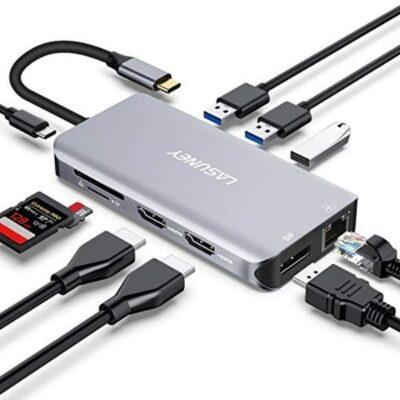Most Android and Apple Tablets will connect to large monitors, keyboards, and mice with a USB-C hub for better productivity

In fact, they also connect to many other devices such as SSD drives, memory sticks, headphones, Ethernet, and more. It can turn especially smaller tablets into quite productive devices. In most cases, the mobile app of a top end application, is cheaper than its desktop counterpart. If you have a smaller tablet with a stylus (Apple Pencil for iPads) being able to watch what you’re doing on a larger monitor is really useful.
Most USB-C hubs have become a lot cheaper and work well on Android and iPad (those with USB-C, but you also get such hubs and adaptors for Lightning ports), but it is well worth reading user reviews just to check if any compatibility issues have been reported. Usually you can expect to have one or more USB sockets, and an HDMI port. It is well worth ensuring you have more than one USB port to allow simultaneous connections of a keyboard, mouse and a storage device.
Keyboards, mice and a monitor probably won’t require external power on the hub, but as you start to add SSD drives (and especially a USB powered hard drive) you may want to consider getting a hub with external power capabilities, or a hub that can handle charge through to charge the tablet at the same time.
See https://www.pcworld.com/article/402858/the-best-usb-c-hubs-for-your-laptop-tablet-or-2-in-1.html
#technology #tablets #productivity #gadgets
#Blog, ##gadgets, ##hub, ##productivity, ##tablets, ##technology